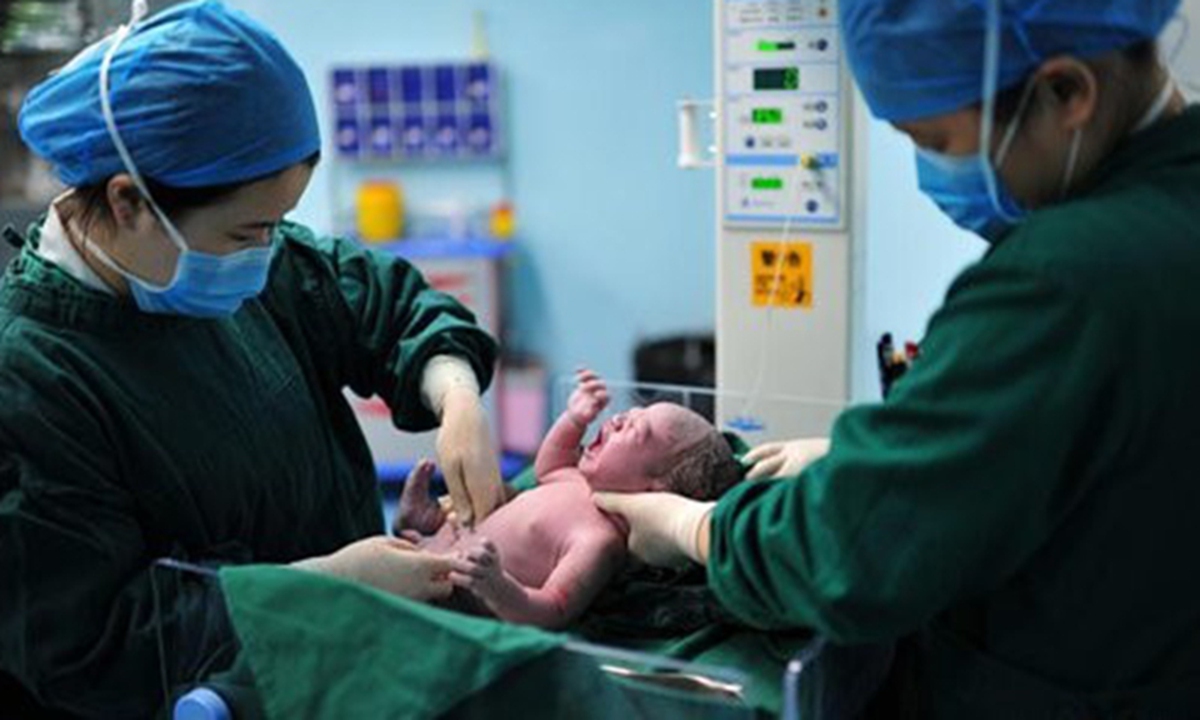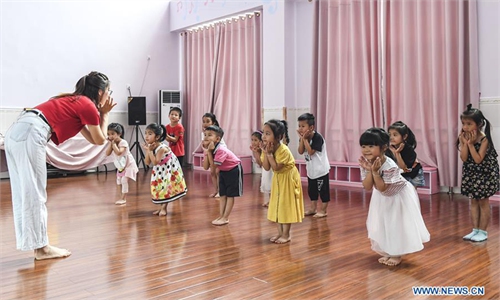
Photo: Xinhua
We notice that the decision emphasizes creating conditions for households to have more children and involves all aspects of childbirth and parenting. These are the worries why young people in big Chinese cities are reluctant to have more children. This shows that the CPC Central Committee is not simply easing the restrictions on the numbers of children that Chinese couples can have, but is also dedicated to pushing forward the formation of measures that will optimize China's population structure.
The timely decision sends a clear signal that the country is coping with various kinds of challenges in a down-to-earth manner. Each country has to face all kinds of problems, and it is especially so for such a massive society as China. But for a long time, China has had a correct understanding of problems, and our policymaking aims at solving these problems. This provides a continuous driving force for the country's development.
What happened around the world in the past few years has made us realize that politically, it is not easy to stick to a fact-based approach. From the US to the island of Taiwan, the polarization of politics has led to a series of policy deviations that go against basic logic. We can see more and more clearly that being able to seek truth from facts is one of China's key political and ideological strengths. It has succeeded in protecting our country efficiently and fundamentally.
China's population structure has the characteristics of becoming aging, and discussions in our society about this topic keep growing. Accordingly, China's family planning policy keeps evolving as well: It used to allow couples to have two children if one of the couple is an only child, then it changed to a second-child policy for all families. Now, Chinese couples are allowed to give birth to three children. There are controversies during the changes, but the general direction of national policy adjustment proves that the combined efforts of the society are effective and healthy. Under the leadership of the CPC, Chinese society has united to move forward and solve every problem we face.
How to implement the third-child policy is not easy in some big cities. Income, housing and children's education will become restrictions for many low-income and middle-income families to give birth to more children. To solve or ease the problems will be the key to putting the central government's policies into practice. There are many factors leading many families to give birth to fewer children. That a family would devote all its resources to one or two children has brought many characteristics of a social system. As our society changes toward more families having three children, the change is bound to be chain-like, reshaping many social arrangements and people's values.
Obviously, most households now are not ready to have three children. After all, it only took eight years to adjust the policy from allowing two children to allowing three, and many of the social adjustments have yet to catch up with the policy change. However, the advantage of our country is that there is no lack of space or enthusiasm for the coordination between market forces and national policies. With the policy promotion of and by the central government, corresponding social changes will take place.
We need to do a lot work to reduce households' worries about having more children, and to provide more convenience for households to look after their children and for children to get educated. Economic conditions are not the sole factor that determines people's willingness to give birth to children. It is equally important to change some habitual views of children and family values in a society with a declining birth rate, and to form new expectations and acceptability, as well as views on happiness.
We need imagination for our future life. Our young generation is not timid or need to regard having fewer children, even infertility, as a kind of "safety." After all, raising children will become the common responsibility and effort of the society. Let's shoulder this responsibility and make great efforts to show our determination through concrete steps that support and inspire households, expecially young couples, to give birth to and bring up children.
Finally, it needs to be pointed out that China's permission to have three children per family, including creating matching conditions, is a policy rather than a specific requirement or regulation for families. But it is for each and every individual family to decide on how many children they will have. The new policy is not mandatory. The significance of our efforts is to change over a period of time the trend of the society becoming increasingly aging, which needs to process under the guidance of policies. This is the result of all members of our society pursuing happiness.



